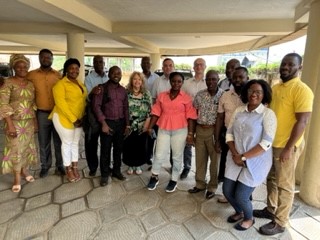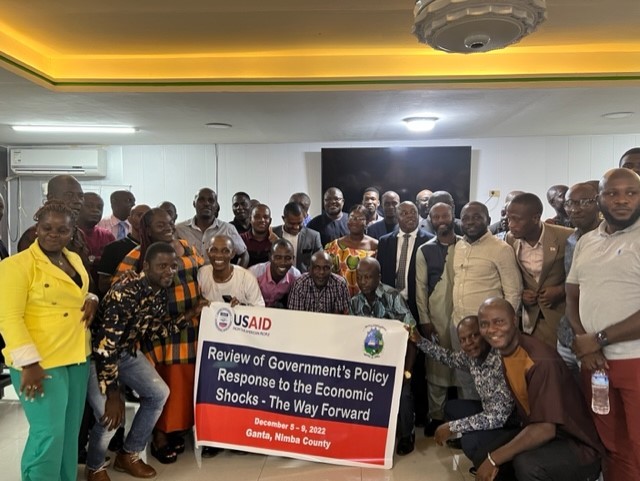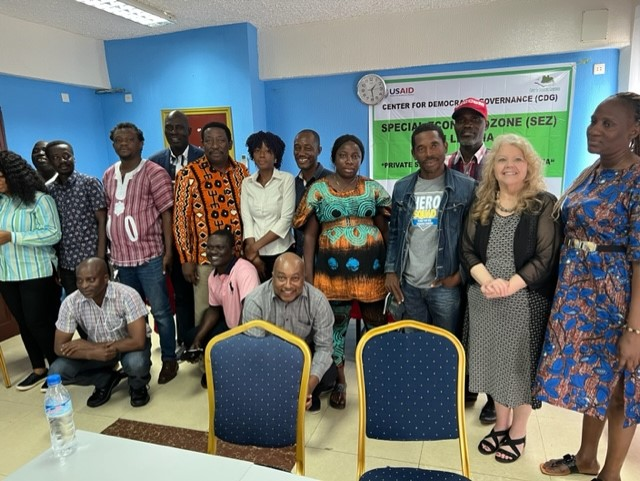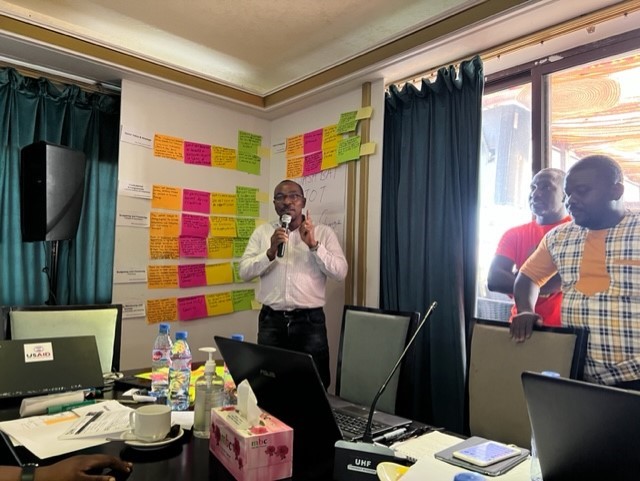Strengthening Economic Policies and Governance in Liberia – a Success Story

The USAID Liberia Economic Policy Dialogue Activity (LEPDA) has emerged as a beacon of success in fostering economic policies and governance reforms within the Government of Liberia (GOL). Over its four-year implementation period, LEPDA, led by Nathan Associates, now proudly part of Cadmus, has significantly contributed to the development landscape of Liberia, leaving an enduring impact on various facets of the nation’s growth.
Economic Resilience Amidst Challenges
Liberia’s economic journey between 2019 and 2023 was marked by economic shocks brought about by the pandemic, the ongoing war in Ukraine, and climate change impacts. Despite these hurdles, the Liberian economy demonstrated resilience, projecting a growth of 4.7 percent in 2023. This growth was attributed to macroeconomic policy reforms and the expansion of non-mining sectors. Notably, the prices of major export commodities, such as palm oil, witnessed an upswing, contributing to economic stability.
To address inflation pressures, the Central Bank of Liberia (CBL) took proactive measures, raising the monetary policy rate to 20 percent on August 1, 2023. This strategic intervention aimed to control the circulation of Liberian Dollars and, coupled with efforts to curb exchange rate manipulation, stabilized the exchange rate in the third quarter of 2023.
LEPDA’s Impact Across Sectors
Addressing Economic Shocks and Ensuring Food Security: LEPDA’s collaboration with the Ministry of Finance and Development Planning (MFDP) resulted in a comprehensive analysis of the government’s regulation of imported rice and fuel. This initiative demonstrated a commitment to addressing economic shocks and ensuring food security. The development of a new policy to promote the Liberian rice industry, supported by an economic model, showcased LEPDA’s dedication to sustainable solutions.

Promoting Access to Finance: LEPDA’s study on lending constraints to Micro-, Small, and Medium Enterprises (MSMEs) led to tangible outcomes. The implementation of recommendations, including capacity-building for credit analysts and dialogue with financial institutions, emphasized the commitment to enhancing access to finance. Training programs, partnerships with the Banking Institute of Liberia (BIL), and support for the CBL marked significant strides in this direction.
Transforming Agricultural Practices: Building on the findings from its landmark study on agriculture concessions in Liberia, LEPDA designed a framework for outgrower schemes for oil palm and rubber concessions. Collaboration with the Ministry of Agriculture, concessions, banks, development partners, and civil society resulted in a programmatic model, economic analysis, and legal risk assessment. This transformative initiative aimed at modernizing and revitalizing the agricultural sector while ensuring gender and community-based participation.
Strengthening the Legal Sector: LEPDA’s focus on the commercial court involved capacity-building, the development of a training manual on the Commercial Code, and collaboration with the Judicial Institute. The introduction of new Rules of Procedure for commercial litigation has sought to enhance efficiency and awaits adoption by the Supreme Court. Initiatives to strengthen case management and training on the codification of Supreme Court opinions as well as awareness of the need for executive approval of the National Law Reform Policy has contributed significantly to legal sector improvements.

Water, Sanitation, and Hygiene (WASH) Sector Governance: LEPDA’s assistance to the National WASH Commission (NWASHC) encompassed the Sector Governance Reform Plan, Operator Regulation, Legal and Regulatory Analysis, and a policy discussion paper on WASH sector decentralization. A focus on the private sector enabling environment highlighted comprehensive governance reform in the WASH sector. Active engagement and consultation with a broad range of WASH stakeholders on these efforts ensured consensus on these efforts.
Diaspora Engagement: Supporting the Liberia Diaspora Exchange (LDX), LEPDA facilitated diaspora engagement and investment through the LDX business exchange platform www.liberiadx.com and Community Application https://liberian-diaspora-exchange.mn.co. Roadshows in the United States, user registration, and online events marked successful efforts to connect with the Liberian diaspora, fostering a sense of connection and collaboration.
Empowering Grassroots Initiatives: LEPDA’s small grants activity aimed at empowering grassroots Civil Society Organizations (CSOs) in the Southeast of Liberia, an area often overlooked for support. Five local CSOs, including women’s groups, conducted food security assessments, showcasing a bottom-up approach. With LEPDA’s support in proposal development, training, and result analysis, local organizations played a pivotal role in addressing crucial issues at the community level.

A Blueprint for Sustainable Development
As Liberia transitions through political changes with hopes for economic resilience, the impact of LEPDA stands as a testament to the success achievable through collaborative efforts and a strategic focus on economic policies and governance reforms. The reforms initiated by LEPDA have not only laid the groundwork for sustained economic growth and private sector development, but also fostered inclusive governance practices.
LEPDA’s success story in Liberia highlights the transformative power of strategic partnerships, capacity-building initiatives, and a commitment to addressing the unique challenges of a nation.
LEPDA was designed to assist the Government of Liberia to undergo a series of steps in a policy development process, referencing LEPDA’s Policy Development Process Framework as the guiding framework. Read more about LEPDA’s impact in its recent Annual Progress Report.
